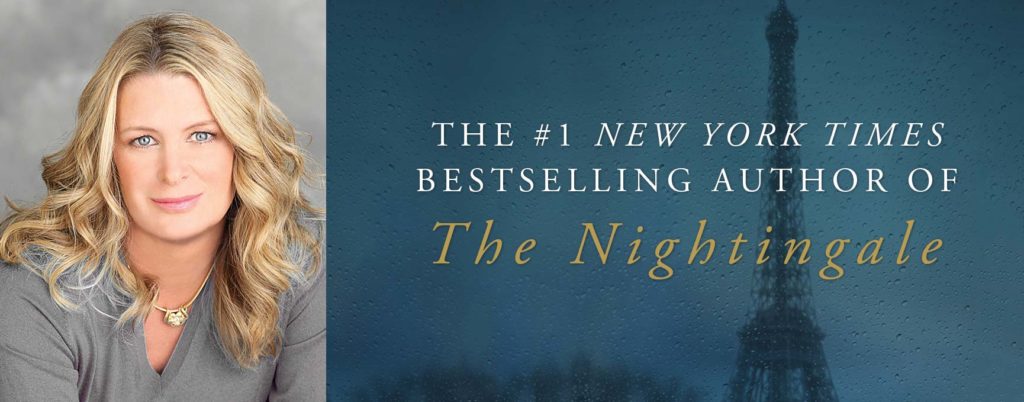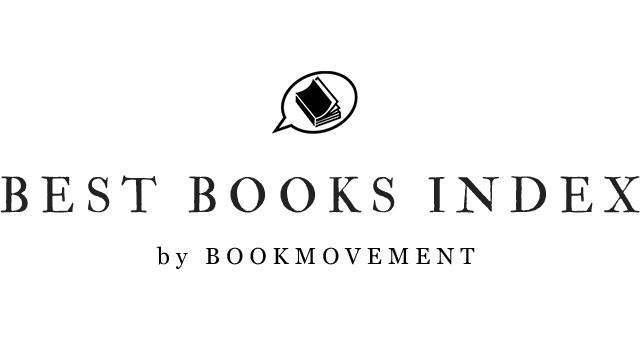The Nightingale was the #2 Top Club Pick of 2016 and continues to be absolutely beloved by book clubs.
This month, to celebrate its paperback release, we are lucky enough to have it as our Author of the Month giveaway & have Kristin Hannah answer a few questions for us about THE NIGHTINGALE.

6 Questions for Kristin Hannah
Do you have any personal experience with the Second World War—relatives living in France, or anywhere in Europe, during that the time? Family or friends who went to fight abroad? What inspired you to write about this chapter in history?
I do not have any personal experience with World War II. Maybe that’s why I love the stories of women who joined the Resistance during the war. They are powerful, compelling stories of ordinary women who became heroes, some at great personal cost.
I first came across the idea for The Nightingale years ago, when I was researching World War II Russia. When I read about an otherwise ordinary young Belgian woman who created an escape line for downed airman, I was mesmerized by her courage and resilience. Her story was the inspiration for Isabelle, but there were dozens of women who had equally compelling stories of courage and heroism and tragedy.
I knew I had to write a novel about the many women who became spies and couriers and risked their lives to save others during the war. And then there were the women who hid Jewish children in their homes. These courageous women put themselves directly in harm’s way. Many of them paid a terrible price for their heroism. As a mother, I found these stories impossible to ignore. And like so much of women’s history, the stories are largely ignored or overshadowed or forgotten.
Can you take readers into the process of writing this novel? What challenges did you face in terms of plotting and structure, for example?
Absolutely, the biggest challenge in writing this novel was weaving together the fictional and non-fictional worlds. Because the novel covers the entire war, it meant that every single scene had to be built upon what was actually happening, and to be honest, adhering to the factual timeline was a constant battle. I literally couldn’t write a sentence or a paragraph or a scene without consulting research material. On top of that, I wrote the first draft before going to France, so I couldn’t really own the landscape in my head; I couldn’t envision it. I couldn’t describe a tree or a road without researching it first. And then there was the burden of accurately capturing the sacrifice and heroism shown by the women of the Resistance. I thought about that all the time. These men and women had sacrificed so much for love and honor and duty; they’d risked their lives and their children’s lives to save others. I wanted to honor them and get their stories right.
Do you have a favorite scene from The Nightingale— a setting or incident that’s especially meaningful to you?
Honestly, there are so many parts and passages of this book that I love, but if I had to pick just one, I would say the scene where Isabelle and Gaëtan see each other again after the end of the war. I tend to be known for writing emotional books that make people cry, but I don’t often have that reaction to my work. I’m too focused on the individual sentences to feel the power of the whole, but that scene made me cry every time I read it—and I read it a lot. ☺
How did you approach the research into this setting and era? To what extent did you stick to the facts in writing The Nightingale? In what ways, if any, did you take artistic liberty?
I was terrified, plain and simple. I had never attempted a novel of such scope and importance. Everything about it was a risk: France. World War II. A sweeping historical epic told in an intimate way. A novel of war about women.
But sometimes a story sneaks up on you, hits you hard, and dares you to look away. That was the case with The Nightingale. In truth, I did everything I could not to write this novel. But when research on World War II led me to the young Belgian woman who had created an escape route out of Nazi-occupied France, I was hooked.
I began as I always do: with research. It’s really the research—in any novel—that informs the story. First I find out what has happened, and then I begin to extrapolate what could happen, and then I create a world that makes sense to me, an imaginary world firmly planted in truth. In this story, of course, the research was a daunting task. There was simply so much to know and understand. I started with the historical background of the war in Europe and then began to narrow my focus. My best information always comes from memoirs—in this case, memoirs of women in the Resistance, and downed airman who had escaped, and women who hid and rescued Jewish children.
As far as complete accuracy and artistic license, of course I took a few liberties—it’s fiction, after all— but I did it all with an eye toward telling a story that felt as true as possible.
>
In your research of WWII, what was the most interesting/ surprising/ shocking thing you learned?
I was continually amazed and awed at the risks ordinary French women took to keep their children safe and help strangers and preserve their way of life. And for women, it is rarely just our own life we are risking; it is our children’s lives. In the midst of such great horror, it must have been beyond terrifying to reach out to help someone.
What do you hope readers will learn from your own novel?
As I researched this book, I found myself consumed by a single, haunting question, as relevant today as it was seventy years ago: When would I, as a wife and mother, risk my life—and more important, my child’s life—to save a stranger? That question is the very heart of The Nightingale. I hope readers will ask themselves that same question: What would I do?

Leave a Reply